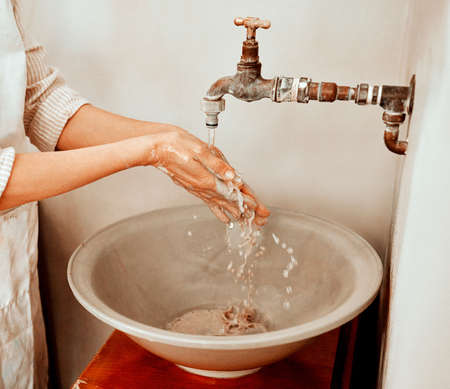Understanding Eco-Friendly Body Washes & Shower Gels
In the UK, the demand for eco-friendly body washes and shower gels has soared as more consumers look to make environmentally conscious choices in their daily routines. But what truly makes a body wash or shower gel “eco-friendly”? To answer this, it’s essential to consider three core aspects: ingredients, packaging, and production processes – all of which are increasingly shaped by British standards and consumer expectations.
Ingredients: The Heart of Eco-Conscious Formulations
The first step in identifying an eco-friendly body wash is examining its ingredient list. UK shoppers are encouraged to avoid products containing parabens, sulphates (like SLS), microbeads, and synthetic fragrances, as these can be harmful to both skin and aquatic environments. Instead, look for plant-based cleansers, natural oils, essential oils for fragrance, and certified organic components. Many brands now highlight certifications such as Soil Association Organic or Vegan Society approval, which help guide ethical purchasing decisions.
Key Ingredient Comparison Table
| Conventional Ingredients | Eco-Friendly Alternatives |
|---|---|
| Sodium Lauryl Sulphate (SLS) | Coconut-derived surfactants |
| Petroleum-based oils | Plant-based oils (e.g., olive, coconut) |
| Synthetic fragrances | Essential oils |
| Parabens | Natural preservatives (e.g., rosemary extract) |
Packaging: Minimising Environmental Impact
A product’s packaging plays a significant role in its environmental footprint. In line with UK initiatives to reduce single-use plastics, many popular brands now offer recyclable bottles, biodegradable packaging, or even refillable options. Shoppers should look out for clear recycling symbols and information on post-consumer recycled (PCR) content when making a choice.
Packaging Sustainability Checklist
- Bottle made from recycled or recyclable material
- Minimal or plastic-free outer packaging
- Option for refills or bulk buying to reduce waste
Production Processes: Ethical & Local Considerations
The sustainability journey extends beyond the bottle. British consumers increasingly expect transparency regarding how products are manufactured. This includes cruelty-free testing (look for Leaping Bunny certification), fair labour practices, and efforts to reduce carbon emissions during production and transport. Supporting locally made products can further decrease your carbon footprint and aligns with the UK’s growing support for homegrown brands.
Key Ingredients to Look For (and Avoid)
When selecting an eco-friendly body wash or shower gel in the UK, understanding the ingredients list is crucial. Not only does this help you avoid substances that may harm the environment, but it also ensures a safer and more nourishing experience for your skin. Here’s a detailed guide on common natural and synthetic ingredients found in popular UK products, outlining which are beneficial for the planet and which you might want to steer clear of.
Natural Ingredients: Gentle on Skin & Earth
Eco-conscious consumers often seek out formulas enriched with plant-based ingredients. These typically biodegrade quickly and are sourced sustainably, minimising their environmental impact. Popular choices include:
| Ingredient | Source | Benefits |
|---|---|---|
| Aloe Vera | Plant extract | Soothes and hydrates; biodegradable |
| Coconut Oil | Natural oil | Moisturises deeply; usually harvested sustainably |
| Shea Butter | Nuts of shea tree | Nourishing; supports fair-trade communities |
| Essential Oils (e.g., lavender, tea tree) | Distilled from plants | Adds fragrance naturally; antimicrobial properties |
| Oat Extract | Cereal grain extract | Mild cleansing; calms sensitive skin |
Synthetic Ingredients: Proceed with Caution
Synthetic chemicals are common in conventional shower gels for their foaming and preserving abilities. However, some can persist in waterways or disrupt ecosystems after rinsing down the drain. Heres a quick comparison:
| Ingredient to Avoid | Common Use | Environmental Impact/Concerns |
|---|---|---|
| Sodium Laureth Sulphate (SLES) / Sodium Lauryl Sulphate (SLS) | Main foaming agents | Can be harsh on skin and aquatic life; slow to biodegrade |
| Parabens (e.g., methylparaben, propylparaben) | Preservatives | Potential hormone disruptors; detected in water sources |
| Microplastics / Polyethylene beads | Exfoliation/texture | Non-biodegradable; pollutes oceans and harms marine species |
| Synthetic Fragrances | Adds scent | May contain phthalates; often undisclosed chemical blends |
| Triclosan | Antibacterial agent | Toxic to aquatic organisms; potential health risks |
The Importance of Biodegradability & Local Sourcing
For UK shoppers, its worth prioritising products with clearly labelled biodegradable ingredients and those sourced locally when possible. This reduces transport emissions and ensures that what washes down your plughole breaks down safely within British waterways.
Quick Tip: Spotting Eco-Friendly Labels
Look out for certifications such as Soil Association Organic, Vegan Society, or Cruelty Free International on UK shelves. These labels often indicate a higher standard of ingredient sourcing and formulation, giving you peace of mind as both a consumer and environmental steward.
Selecting the right body wash isn’t just about pampering your skin—it’s also about making a positive impact on our shared environment.
![]()
3. Packaging: Going Beyond the Bottle
When choosing an eco-friendly body wash or shower gel in the UK, packaging plays a crucial role in the overall sustainability of your purchase. It’s not just about what’s inside—the outer container can significantly impact the environment, both in terms of material and end-of-life disposal. Here’s an analysis of common packaging types and a look at the latest trends in eco-conscious options available on British shelves.
The Environmental Impact of Packaging Materials
| Packaging Type | Environmental Impact | Availability in UK Market |
|---|---|---|
| Conventional Plastic Bottles (PET/HDPE) | High carbon footprint, long decomposition time, often single-use but widely recycled if clean and sorted properly | Very common |
| Recycled Plastic (rPET/rHDPE) | Lower resource use compared to virgin plastic, still dependent on consumer recycling habits | Increasingly available from leading brands |
| Aluminium Bottles | Highly recyclable and durable, lower carbon footprint if reused or recycled correctly | Growing trend with refill brands and indie labels |
| Glass Bottles/Jars | 100% recyclable but heavy to transport, breakable; best suited for refills or local delivery | Niche but expanding in eco shops |
| Paper/Cardboard Packaging (for bars/powders) | Biodegradable, compostable, minimal plastic; must be kept dry to maintain integrity | Popular for soap bars and powder concentrates |
| Compostable Bioplastics | Breaks down in industrial facilities, limited home-compost options; potential for greenwashing if not certified | Emerging, mainly with boutique brands |
Current Trends: Recyclable, Refillable, & Plastic-Free Solutions
Recyclable Options:
The majority of mainstream body washes and shower gels now feature bottles made from PET or HDPE plastics that can be recycled through most kerbside collection schemes across the UK. However, the effectiveness depends on proper rinsing and local council capabilities. Look for products clearly labelled as ‘widely recycled’ for peace of mind.
Refillable Solutions:
The refill movement is gaining traction with several brands offering aluminium or sturdy plastic bottles designed to be topped up either at home or at local zero-waste stores. Brands like Faith In Nature and The Body Shop are pioneering refill stations in high street shops, making it easier for consumers to reduce single-use waste while enjoying their favourite products.
Plastic-Free Innovations:
If you’re aiming for a zero-plastic bathroom routine, consider solid soap bars or powdered shower gels packaged in paper or cardboard. These options eliminate the need for plastic altogether and are perfect for those looking to minimise their environmental impact. British indie brands such as Ethique and Friendly Soap have led this movement by offering completely compostable packaging solutions.
The Takeaway:
Selecting an eco-friendly body wash or shower gel isn’t just about ingredients—it’s also about how your product is packaged and disposed of. By opting for recyclable, refillable, or plastic-free packaging commonly found in the UK market, you can make a meaningful difference in reducing household waste and supporting a more circular economy.
4. Certifications and Labels: What Do They Really Mean?
When shopping for eco-friendly body washes and shower gels in the UK, you’ll often encounter an array of certifications and labels. While these badges may look impressive, it’s essential to understand what each actually represents—so you can make informed choices that align with your values. Below, we break down the most relevant eco-certifications, cruelty-free, and vegan labels commonly found on British shelves.
Key Eco-Certifications in the UK
| Certification/Label | What It Means | Why It Matters |
|---|---|---|
| Soil Association Organic | Ensures products contain a high percentage of organic ingredients and adhere to strict environmental standards. | Guarantees fewer synthetic chemicals and promotes sustainable farming practices. |
| Ecocert | Recognises natural and organic cosmetic products that meet environmental and health criteria. | Assures transparency in sourcing and processing, reducing ecological impact. |
| COSMOS-standard | An international standard for organic and natural cosmetics, widely adopted in Europe and the UK. | Ensures formulations are environmentally friendly from production through to packaging. |
Cruelty-Free Labels
If animal welfare is a priority, look out for these trusted logos:
- Leaping Bunny: The gold standard for cruelty-free assurance; products are independently audited to ensure they’re not tested on animals at any stage.
- PETA Cruelty-Free: Indicates the brand does not conduct, commission or pay for animal testing anywhere in the world.
Vegan Certifications
The term ‘vegan’ can be loosely used, but official certifications give extra confidence:
- The Vegan Society Trademark: Guarantees the product contains no animal-derived ingredients or by-products, including during manufacturing.
Avoiding Greenwashing
Some brands use ambiguous language like “natural” or “eco-friendly” without substantiated claims. Always check for genuine certifications rather than relying solely on marketing buzzwords. Reputable certifications offer clear standards and regular audits—making them your best guide for responsible shopping in the UK market.
5. Top UK Brands Leading the Eco-Friendly Movement
When it comes to selecting an eco-friendly body wash or shower gel in the UK, both high-street giants and independent British brands are stepping up to meet sustainability demands. Here’s a brief overview and comparison of some of the most respected names recognised for their green initiatives.
High-Street Favourites
British high-street retailers have increasingly prioritised eco-friendly formulations, ethical sourcing, and recyclable packaging. Some of the most popular options include:
| Brand | Sustainability Credentials | Key Products | Price Range |
|---|---|---|---|
| The Body Shop | Vegan options, recycled packaging, cruelty-free | Almond Milk Shower Cream, Satsuma Shower Gel | £-££ |
| Lush | Naked (packaging-free) products, handmade in the UK, ethically sourced ingredients | Honey I Washed The Kids Soap, Dirty Springwash Shower Gel | ££-£££ |
| Faith In Nature | 99% natural origin, vegan, recycled & recyclable bottles, made in the UK | Coconut Body Wash, Aloe Vera Body Wash | £-££ |
Independent British Brands Making a Difference
For those who prefer supporting small businesses with transparent supply chains and strong eco values, these independent British brands are making waves:
| Brand | Sustainability Credentials | Key Products | Price Range |
|---|---|---|---|
| Bramley | Natural botanicals, biodegradable formulas, 100% recyclable packaging, cruelty-free | Body Wash with Lavender & Geranium, Shower Gel with Lemon & Mandarin Essential Oils | ££-£££ |
| Evolve Organic Beauty | Certified organic ingredients, vegan, small-batch production in Hertfordshire, recyclable bottles made from recycled plastic | Citrus Blend Aromatic Wash, African Orange Aromatic Wash | ££-£££ |
| Bottle None UK* | No-plastic solid bars, zero waste ethos, palm oil free, cruelty-free (*UK distributor of Canadian brand) | Naked Body Wash Bars (various scents) | £-££ |
A Quick Comparison: High-Street vs Independent Brands
| High-Street Brands | Independent Brands | |
|---|---|---|
| Sustainability Focus | Mainstream accessibility; larger-scale eco changes; often certified cruelty-free/vegan options. | Niche ingredients; often more transparency; emphasis on local sourcing and artisan production. |
| Packaging Solutions | Mainly recycled/recyclable plastics; some packaging-free products (e.g., Lush). | No-plastic/compostable packaging common; creative zero-waste solutions. |
| Price Point | Tend to be budget-to-mid range. | Slightly higher due to small-batch and premium ingredients. |
The Takeaway for UK Shoppers:
If you’re seeking affordable and widely available eco-conscious body washes or gels, high-street stalwarts like The Body Shop or Faith In Nature are safe bets. For those wanting niche blends or innovative low-waste formats – and who wish to support homegrown businesses – independent labels such as Bramley and Evolve Organic Beauty deliver on both performance and planet-friendly credentials.
6. Practical Tips for Making the Switch
Transitioning to eco-friendly body washes and shower gels in the UK doesn’t have to be overwhelming. With a few practical strategies, you can make more sustainable choices while still enjoying your daily cleansing routine. Below are actionable tips tailored for British consumers, including where to shop and how to reduce waste effectively.
Where to Shop for Eco-Friendly Options
The UK boasts a growing number of retailers dedicated to sustainability. Consider the following options when searching for your next body wash or shower gel:
| Shop Type | Examples | Key Benefits |
|---|---|---|
| High Street Stores | Boots, Holland & Barrett, Lush | Wide selection, convenient locations, often stock refill options or zero-waste packaging |
| Online Marketplaces | Etsy UK, Ethical Superstore, Big Green Smile | Access to niche brands, detailed ingredient transparency, home delivery |
| Zero-Waste & Refill Shops | The Source Bulk Foods, Planet Organic (select locations) | Bring your own containers, minimal packaging waste, support local businesses |
Reducing Waste at Home
- Choose concentrated formulas: Solid bars or concentrated liquids last longer and require less packaging.
- Reuse and recycle bottles: Opt for brands offering refill schemes or bottles made from recycled materials.
- Avoid microplastics: Check labels for “polyethylene” or “microbeads” and choose products free from these ingredients.
- Create a bathroom recycling station: Place a separate bin in your bathroom to make recycling easier for all family members.
- DIY solutions: Experiment with making your own natural body washes using UK-sourced ingredients like oats and honey.
Savvy Shopping Habits for Sustainability
- Read labels carefully: Look for certifications such as Soil Association Organic or Vegan Society Trademark that are recognised in the UK.
- Buy in bulk: Larger containers reduce overall packaging and are often better value per use.
- Support local brands: Purchasing from British manufacturers lowers transport emissions and supports the local economy.
- Avoid unnecessary extras: Skip products with excessive outer boxes or single-use sachets.
Your Next Steps Towards Greener Showers
The shift to eco-friendly body washes and shower gels is not just a trend—its an impactful lifestyle choice that aligns with growing environmental awareness across the UK. By following these practical tips and supporting responsible brands, British consumers can enjoy clean skin while protecting our planet’s future. Every small switch helps contribute to a cleaner environment and a more sustainable community.


